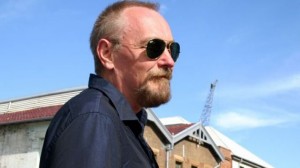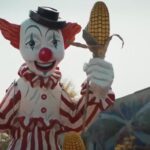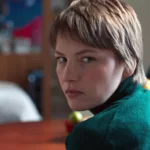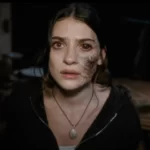Ed Kuepper has recently released a new album, The Return Of The Mail- Order Bridegroom (Valve). A stripped back affair, Kuepper re-visits his own material as well a few choice covers. It’s here you’ll hear Messin’ With The Kid, Brisbane (Security City) and The Way I Made You Feel alongside a re-invention of No Regrets and Kuepper’s take on the perennial, Hey Joe. Sean Sennett caught up with Kuepper to discuss the record.
TOM: It’s interesting to see you recorded at QUT’s Gasworks (studios). What was the motivation there? I know you’ve got a recording set up at home. Did you like the idea of going somewhere else to record?
Ed: I’d recorded an album there a year or so ago and I was really happy with the results. It has a better acoustic room than what I had at the time.
TOM: What did JohnWillsteed (co-producer) bring to it?
Ed: Lunch and good vibes.
TOM: Was he a mate of yours from back in the old days?
Ed: John auditioned for the Yard Goes On Forever, he reminded me, and I’d forgotten about that. I think I sort of got to know him better once we moved up here.
TOM: I was wondering how you went about choosing the songs that made up the record.
Ed: With the exception of “No Regrets,” every song was a song that was requested on the By Request tour that I did last year. “No Regrets” was just something I decided to throw in there. I had recorded a lot of shows last year, being the By Request things, and it was basically too much material to go through. Because they were live recordings in different rooms, the sounds was different on each one. I wanted something that was more coherent, something I was actually feeling had come out of this whole process of sort of throwing myself at the mercy of the audience in a way.
It wasn’t a situation where I gave people a list of two-dozen songs and said request something from that list. They could request whatever they liked. The ones that made it to the album were ones that kind of felt right, for whatever reason. To some extent, like we’d recorded a number of songs which didn’t end up on the record, which are also perfectly good, and the live demo may come out at some stage. But I just wanted something that had a fairly coherent sort of atmosphere about it.
TOM: Obviously you recorded the album in three days, so it’s relatively quick. What was your attitude to overdubs and those kind of things? Were you after a live take, or a particular feel?
Ed: We did not overdubs. Everything is one take. All the sounds where you hear other sounds coming in, that’s all created while I’m playing. We had a lot of mics up around the room because I use sort of ambient reflection stuff, but nothing is overdubbed.
TOM: “Hey Joe,” I just wondered why you decided to record that song.
Ed: It got requested and I suppose if I were to list a number of songs that I kind of remember having a really big impact on me when I was a kid, that was one of them. It was one of the first records as a 45rpm I that that I had. Somebody gave me a whole box of records and that one kind of really stood out.
TOM: Was that Hendrix’s version or Tim Rose’s version?
Ed: No, Hendrix’s version. I didn’t hear Tim Rose’s version until — I can’t remember when, but there’s been tons of other version. But Hendrix’s version was the only one that I really liked. It took me a long time to kind of get used to there being other ways of doing the song.
TOM: In terms of you playing the song, when did you first find your way into doing it? Was it something you’d played as a kid, in your bedroom?
Ed: I think I probably tried to play about three songs by other people in my entire life, unless I’m being employed to do so. That was one. I think I even tried to learn the guitar solo. I don’t think I know how to do it still, but I’m just not very fixated on learning how to play other peoples’ songs. I can’t take something from a record and that is then how I would interpret the artistic intent, as opposed to being able to do accurate or adequate covers kind of thing.
TOM: You know, this is obviously a real indie record. It’s very independent in the truest sense of the word. When did you kind of realize you’d be much better suited as an independent artist than being with a major label?
Ed: I have been for most of my life. There have been a few years here and there where I have had some sort of relationship with a major label. For the most part, I don’t know, I started off independently and still working independently.
TOM: Little Steven was out here with Springsteen and he and Bruce are big fans of “I’m Stranded.” Does it make you feel good when an artist of that stature recognises your work, or is it just like someone else giving you a compliment?
Ed: Not unless they buy the record or promote it on their radio interview sort of thing, otherwise yeah sure, I’m flattered by anybody that sort of likes the records. I suppose depends at what point you hear these things around. Back when the album came out, it might have had some sort of significance. I remember there being an Australian journalist interviewing me in England when The Saints first got over to London. He said he’d just been in New York talking to Jimmy Page. Page said to him, “What are you doing talking to me? You should be back in Australia talking to The Saints.” Obviously, he didn’t know that we’d already moved to London.
Those sort of things, sure, you sort of think yeah, that is kind of flattering. I’m not diminishing it, but on the other hand, I’m sort of too modest to be strutting around about it.
TOM: I was curious with your writing process, when you do write a song, do most of them come quickly, or are there some you spend years trying to finish?
Ed: I really don’t know. I think it’s kind of an ongoing process these days. I don’t know whether a song is actually finished because the versions of the songs I’ve recorded on that album, some of those songs were in their original forms written 40 years ago or something. They’re different now. There is some kind of a difference now. So is a song something that’s kind of written in stone, so to speak, as soon as it’s recorded, or is it something that kind of once you do it, it becomes this ever-evolving process? I tend to veer towards the latter, certainly for live playing. That’s not to say people don’t have a particular version of a song they think can never be improved upon, but when you’re playing live night after night, you kind of develop a different perspective. I suppose in some ways it’s closer to what a jazz approach or blues approach might be.
TOM: Some of the songs on the record, like “Swing for the Crime,” do you remember writing that song?
Ed: Yeah, I do, very clearly in fact. I was waiting for The Saints second album to be released. I was living in a flat in the very un-punk-like suburb of Hampstead, and I was getting impatient. I wanted to start developing what we were doing as a band. We’d recorded and mixed the first album in a weekend in Brisbane. Then when we had like two weeks to record Eternally Yours, the second album, I was getting really excited about working in the studio. But you still had all this sort of process of the album, once you’d recorded it, it would take ages before it would be released. Or what seemed like ages, a couple of months probably.
I was getting impatient and “Swing for the Crime” was one of the first songs for the third and final album that the original band, Prehistoric Sounds. I’d been listening to quite a lot of soundtrack music, things like I’d bought a compilation of John Barry’s film music, and I had a Morricone sort of best of compilation. Morricone had always stuck in my head, even as a kid, the first time I heard “The Good, The Bad and the Ugly.” That was a powerful radio moment, even though I think it was probably the version by Hugo Montenegro in Brisbane, but you still got a sense of what the song was, and what the piece was.
I think I sort of drew on those kinds of things, plus a tip of the hat to Bo Diddley who’s probably my favourite rock and roll musician. And it just sort of came together. “Swing for the Crime” basically being a reference to western soundtrack movies, basically. I had the title and the music sort of going. I love Chris Bailey’s lyrics to the song… that’s how it evolved, basically.
TOM: When you did that first record, where was the studio? People talk about Sunshine Studios or Windows Studios.
Ed: Same thing.
TOM: By the time bands in Brisbane in the ’90s started going there it was at West End, just off Montague Road. Where was it when you recorded?
Ed: Probably the same place. It was in West End. Ivor (Hay) found the studio, (he) was working at a tape duplication place, and hence had the sort of inside connection, I have no idea. I think he just kind of asked the guy that ran the business he was working at if there’s a studio down in West End. So we went down there and were very lucky. On the first session, where we did record the single, and then we went back and did the rest of the album a few months later with a slightly different engineer. But the first time around Mark Moffat was the house engineer and he was really good. He was really very helpful.
TOM: I guess you struck oil having him, given what he went on to achieve.
Ed: I think it’s funny because he kind of says he’s done all this stuff, and the only thing anyone ever wants to talk to him about is “Stranded,” so I think it’s kind of a bit of a — he benefitted from the experience as well. Mark was great. I can’t sing his praises enough. He was really fantastic.
TOM: Was “Stranded” recorded quickly?
Ed: We recorded quickly because we knew how to play it. It was like it’s sort of essentially done live in the studio and then on the A side, I double-tracked the guitar. And on the B side, I did a bit of a lead-over dub in one of those guitar solos. It was done quickly just because I knew what we were doing, I suppose.
TOM: You seem, as a writer, when you get a thread of an idea, follow it through to completion, as opposed to letting something fester for ten years. Would that be correct?
Ed: No, I have those. “I’m Stranded” was written in 1974. It was recorded in 1976. It’s actually quite a long period. “Messin’ with the Kid” and “Nights in Venice” were written in 1973. They were amongst the first songs the band played. No, I don’t know, I tend to record quickly, but I don’t know whether I write quickly. I tend to get a lot of ideas and sometimes they do sit around for years.
TOM: Do you see this record as a precursor to the next one? Is there going to be a thread there?
Ed: Yeah, there’s a kind of thread. This is kind of a second instalment, the one before was called Second Winter and there will be another one in this series, which is at the moment, tentatively titled Lost Cities. So we’re moving — there’s probably going to be a parallel universe evolving here somewhere, I think.
TOM: The next lot of shows you do, will it be you solo?
Ed: Yeah, I think solo is the way to go. I think bands are what you do when you’re in high school or something. I make a lot of sound when I play solo. I will probably always involve people at various points in time. I do enjoy working with other people, but there’s always something that is kind of extra sort of strong about it, if you can make it work by yourself.
Ed Kuepper Solo & By Request plays the Old Museum Bowen Hills on Saturday August 09, The Soundlounge Currumbin August 22 and the Imperial Hotel Eumundi on August 23. Return Of The Mail Order Bridegroom is out now through Valve.




